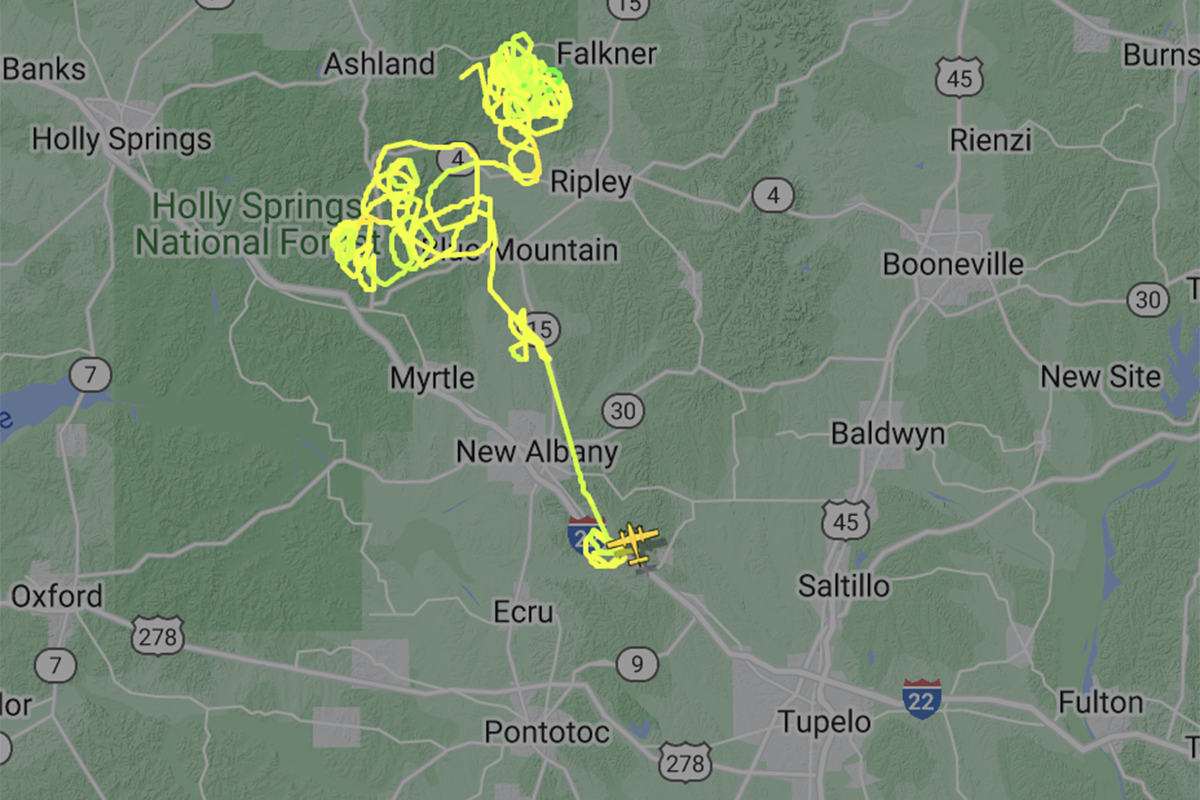Airport Worker Steals Plane Then Threatens to Crash It into a Walmart
CBS News Report - Man who threatened to crash stolen plane into Walmart didn't have pilot's license
On 9/03/2022 a man who worked at the Tupelo Regional Airport in Mississippi allegedly stole a Beechcraft King Air C90A, twin-engine aircraft (N432ER registered to Southeast Aviation). Shortly after his 5:00 am departure he called 911 and threatened to crash into a Walmart. The store was subsequently evacuated. He then proceeded to loop and circle over the area for nearly five hours, exhausting the fuel supply, before landing in a soybean field. No injuries were reported.
According to the CBS report, "The pilot, identified as 29-year-old Cory Wayne Patterson, was in custody and charged with grand larceny and making terroristic threats..."
Per Kathryn's Report, "Patterson was a 10-year employee of Tupelo Aviation Unlimited, the fixed base operator at Tupelo Regional Airport. Patterson was a lineman for TAU, which means he fueled the planes." The screenshot provided by Flying Magazine of the flight track produced by the stolen aircraft bears an uncanny resemblance to flight tracks produced by student pilots when they fly relentlessly and repetitively over local communities.

This incident raises a number of questions about the lack of adequate security policies pertaining to general aviation airports and to the pilots and passengers who fly in single and twin engine airplanes as well as helicopters and private jets. Unlike commercial airline passengers, they are not required to undergo TSA security checks before boarding an aircraft. As pointed out in a CBC report,
"Michael Canders, director of the Aviation Center at Farmingdale State College in New York, called the incident 'a wake-up call' for general aviation airports and their staff.
"The U.S. Transportation Security Administration requires annual training emphasizing a 'see something, say something' approach to try and prevent a scenario like what police believe occurred in Tupelo—an employee with access to aircraft, Canders said.
"'This very thing is discussed in the course, the potential for somebody gaining access and intent on damage,' he said. 'It's dependent on all of those who work at an airport. If you see someone you don't recognize or some unusual activity, you're supposed to report that.'"
The article also mentioned that Patterson was employed in a position that required fueling planes. This raises the question of lead exposure as this toxic gasoline which is still used in piston-engine aircraft is known to adversely impact the part of the brain associated with executive functioning. Symptoms of lead poisoning include impulsivity, delinquency, increased violence, and problems in regulating behavior.
Another question that arises is what policies and regulations are in place to screen workers and to insure protections against exposure to lead and other toxic pollutants at and in the vicinity of airports, especially since these facilities are known to be major emitters of lead and other damaging toxins?
| © Oregon Aviation Watch | Contact Us |  Jump to Top Jump to Top |
